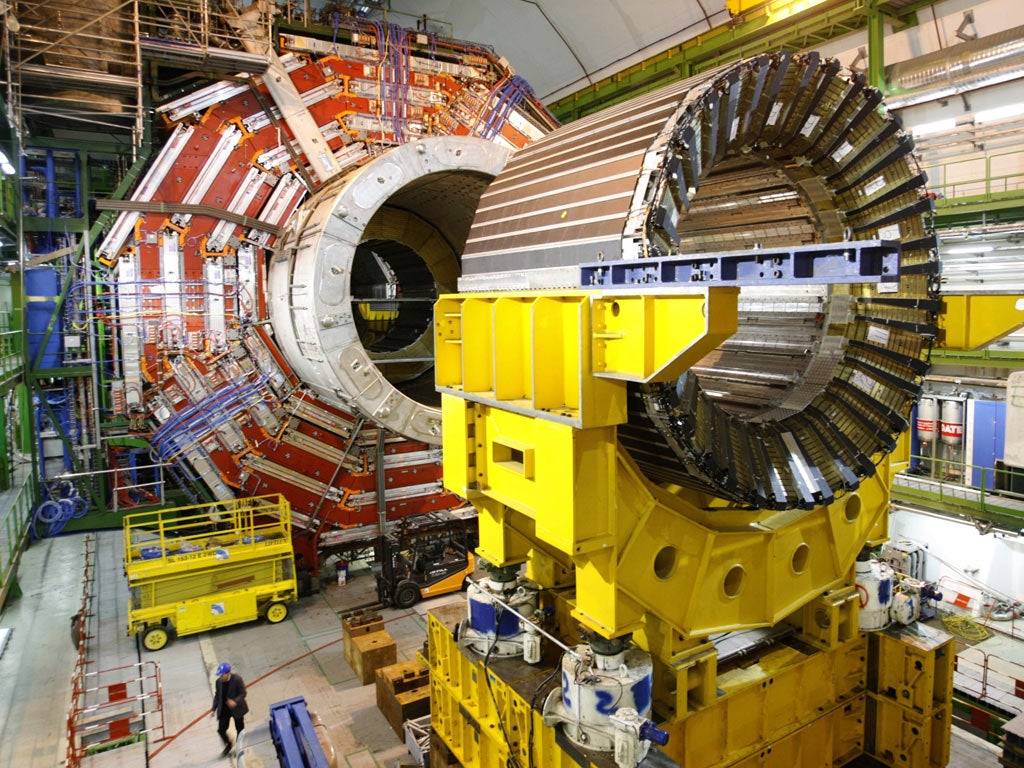Scientists to reveal progress in search for Higgs boson

Your support helps us to tell the story
From reproductive rights to climate change to Big Tech, The Independent is on the ground when the story is developing. Whether it's investigating the financials of Elon Musk's pro-Trump PAC or producing our latest documentary, 'The A Word', which shines a light on the American women fighting for reproductive rights, we know how important it is to parse out the facts from the messaging.
At such a critical moment in US history, we need reporters on the ground. Your donation allows us to keep sending journalists to speak to both sides of the story.
The Independent is trusted by Americans across the entire political spectrum. And unlike many other quality news outlets, we choose not to lock Americans out of our reporting and analysis with paywalls. We believe quality journalism should be available to everyone, paid for by those who can afford it.
Your support makes all the difference.Scientists are expected to reveal "significant progress" in the search for the so-called "God particle" today, but will not be able to say whether it exists or not, they said.
The Higgs boson, nicknamed the God particle, is theoretically responsible for mass, without which there would be no gravity and no universe.
In May scientists predicted that within two years they would either find the Higgs boson or show conclusively that it does not exist.
The search for the Higgs boson is taking place at the Large Hadron Collider (LHC), which fills a 27-kilometre circular tunnel 100 metres below the French-Swiss border near Geneva.
Dubbed the "Big Bang machine", the LHC was built at a cost of around £2.6 billion to recreate conditions a fraction of a second after the birth of the universe.
The machine, weighing more than 38,000 tonnes, accelerates streams of protons - the "hearts" of atoms - close to the speed of light and smashes them into each other at unprecedented energies.
Scientists at Cern - the European Organisation for Nuclear Research, which co-ordinates the LHC project - have been hunting for the particle and are expected to present the status of their searches at a seminar today.
An announcement on Cern's website said: "These results will be based on the analysis of considerably more data than those presented at the summer conferences, sufficient to make significant progress in the search for the Higgs boson, but not enough to make any conclusive statement on the existence or non-existence of the Higgs."
Even the discovery that nature does not contain a Higgs particle would be a momentous event in physics. If this was shown to be true, scientists might have to abandon the "Standard Model", the best theory so far for explaining the fundamental mechanics of the universe.
In May this year Cern director general Professor Rolf-Dieter Heuer said: "I'm pretty confident that towards the end of 2012 we will have an answer to the Shakespearean question for the Higgs boson: to be or not to be."
PA
Join our commenting forum
Join thought-provoking conversations, follow other Independent readers and see their replies
Comments